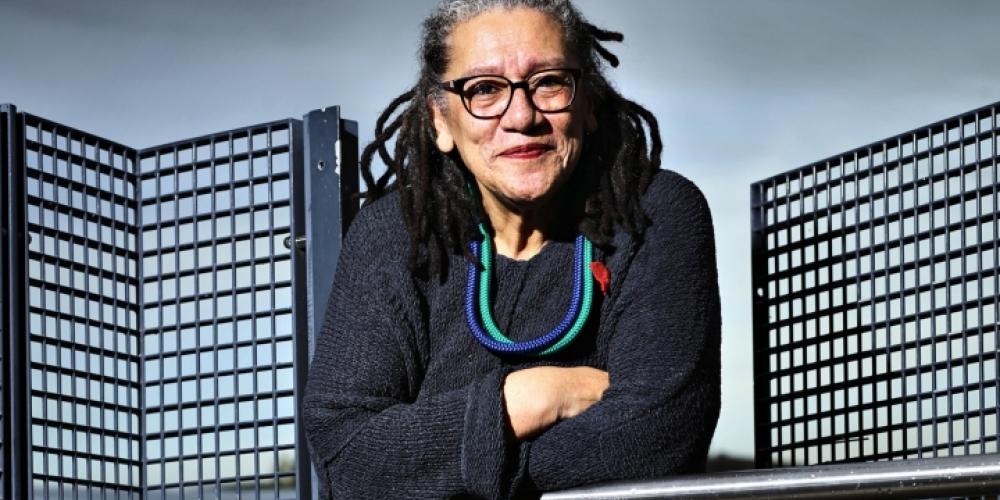
The event with Gloria Wekker will be coordinated by Karen Celis, an academic who has built up extensive international expertise in gender and diversity. In addition to serving as the co-director of RHEA, the VUB expertise centre on gender, diversity and intersectionality, she also helps develop the VUB’s equality policies.
there's an almost combative denial of racism and discrimination among white people and great discomfort in such discussions
Gloria Wekker is probably the most famous name on the Gender Week programme. What do we need to know about her?
“She’s an emeritus professor in gender and ethnicity at the University of Utrecht. She’s a prominent academic and an impressive lady. Professor Wekker wrote White Innocence, a book that justly received a lot of attention because it tackled a painful question – that of the Netherlands’ colonial past. How you view yourself and how you view others is affected by the lingering traces of 400 years of colonialism. Using her own experiences as well as historical and anthropological analyses of Dutch society – and white and Western society by extension – she lifts the curtain on the racism and discrimination that exists in our society. She does this in a very analytical and accessible way. In Wekker’s eyes, there continues to be a strong belief in a sort of white superiority. The remarkable paradox here is the staunch, almost combative denial of racism and discrimination among white people and the great discomfort felt around such discussions.”
How will her story be addressed during Gender Week?
“Among other things, Gloria Wekker will for instance explain why the presence of this colonial past in our society is so important. That we dare recognise that white people have privilege and that people of colour are in a disadvantaged position. Because it is a paralysing paradox; we have a kneejerk reaction to it and we struggle to deal with this. Racism plays out before our eyes but we embrace ignorance and innocence. Professor Wekker nevertheless doesn’t believe our thinking should revolve around notions of guilt and innocence because that’s not a productive approach. Instead, we ought to acknowledge that some people are discriminated against and do something with this knowledge. Racism also goes hand in hand with sexism and classist stereotypes.”
The next day, Gloria Wekker will visit VUB. She’ll give an introduction to the world of diversity policies to a number of executives at the VUB as well as at DeBuren and Kaaitheater in a private session. Members of two VUB student organisations will also participate. What are you planning on asking Wekker?
“So many things, among others how to best get started on a diversity policy. What characterises a good approach, and what are the dos and don’ts. I hope she’ll want to continue being involved in our policies in the future. So I’m going to make sure we have irresistible Belgian chocolate on hand …
How important is it that the VUB have a gender policy?
“We still haven’t achieved gender equality at the VUB. We still do not have full gender parity in decision-making and we’re a long way off from 50-50 male-female ratio when we look at the academic staff. The higher you climb the academic ladder, the fewer women you encounter, and this also has remuneration implications. The academic world has always been a male stronghold, with positions that were very much written for men. The good news is that the issue is being addressed. We have an action plan to end the inequality since 2014. We’re not there yet, but we are determined to get there!”
Why organise a Gender Week?
“With this series of academic lectures and discussions, we want to keep the issue of gender on the VUB’s radar. We’re doing this by putting on a very extensive programme that will address topical issues in society. For instance, on 5 March the recent #MeToo campaign will be highlighted in a Machteld De Metsenaere lecture by Renée Römkens, a professor in gender-based violence at the University of Amsterdam.”
“We are using the programme to emphasise that there continues to be gender inequality and that this gender inequality cannot be seen separately from other forms of inequality. It’s why we’ll be reading excerpts from the work of Moroccan sociologist Fatima Mernissi on gender and Islam in a reading session at the Brussels library. And we’ll ask what ‘good’ development cooperation looks like in another lecture. It’s going to be a jam-packed week …”
The lectures and debates being organised as part of Gender Week will be held at various locations between 5 and 8 March. The programme addresses hot-button issues and is attracting a lot of interest. Do not miss out this opportunity and register today at www.vub.ac.be/over/genderweek